.jpg)
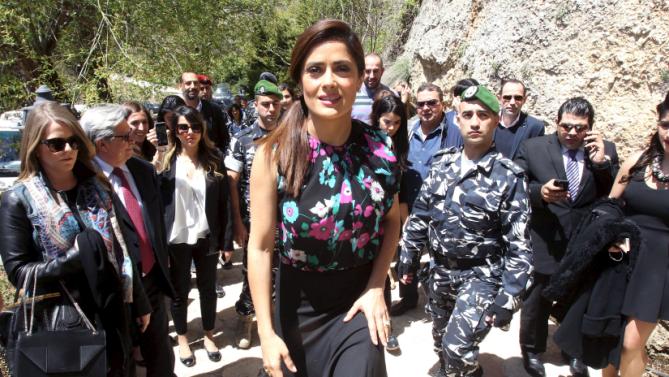
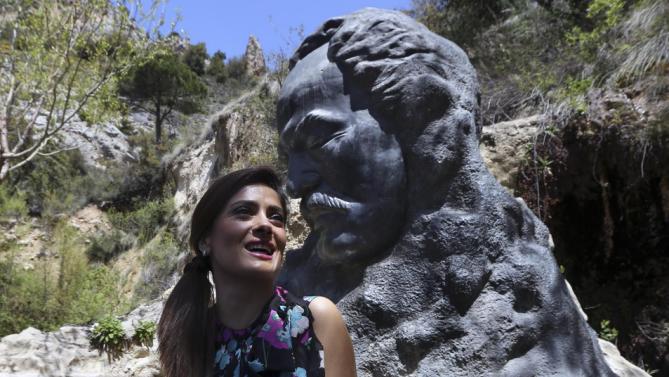
Mexican and American Salma Hayek sits in front of a statue of Lebanese-American poet Khalil Gibran during her visit to his museum in the northeast mountain town of Bcharre, Lebanon, Sunday, April 26, 2015. Hayek visited her ancestral homeland Lebanon to launch her latest film "The Prophet," a screen adaptation of the book by the same name written nearly a century ago by the famed Lebanese-American poet and philosopher Gibran. (AP Photo/Bilal Hussein)
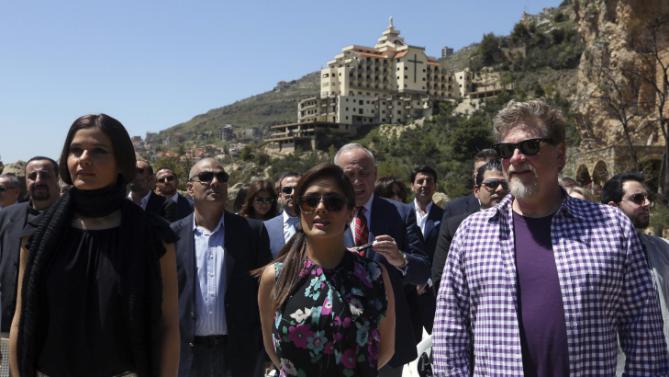
Mexican and American actress Salma Hayek, center, Lebanese legislator Setrida Geagea, left, and film director Roger Allers, right, stand for the Lebanese and Mexican national anthems during her visit at the museum of the famed Lebanese-born poet and philosopher Khalil Gibran in the northeast mountain town of Bcharre, Lebanon, Sunday, April 26, 2015. Hayek visited her ancestral homeland Lebanon to launch her latest film "The Prophet," a screen adaptation of the book by the same name written nearly a century ago by Gibran. (AP Photo/Bilal Hussein
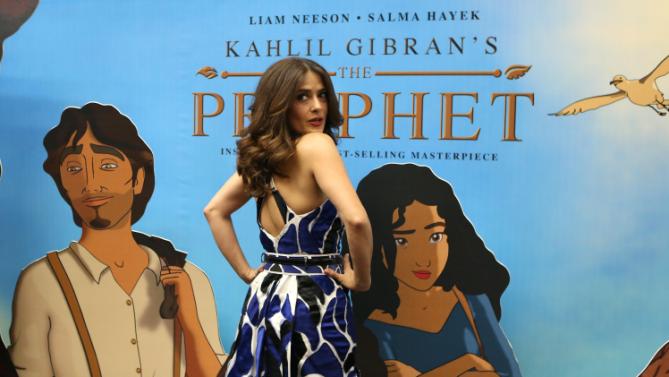
Mexican-American actress Salma Hayek poses for photographers next to a poster for her film, "The Prophet," an animated feature film she co-produced, on her arrival to a cinema where she gave a press conference, in Beirut, Lebanon, Monday, April 27, 2015. In her first visit to her ancestral homeland, Hayek visited the picturesque mountain village of Bcharre in northern Lebanon on Sunday to pay homage to Khalil Gibran, the Lebanese-born poet who wrote "The Prophet," the book on which the film is based. (AP Photo/Hussein Malla)
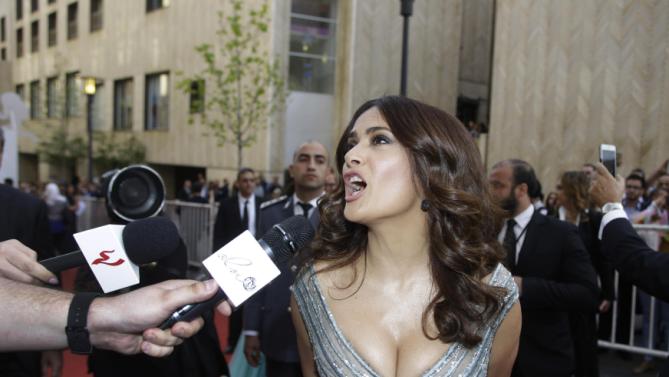
Mexican and American actress Salma Hayek speaks with media as she arrives to her international premiere film "The Prophet," an animated feature film she co-produced, in Beirut, Lebanon, Monday, April 27, 2015. Hayek is in Lebanon for the film, written and directed by Roger Allers, the maker of the Disney production The Lion King. The film tells the story of a young girl who finds the voice she lost through her friendship with a poet imprisoned for his ideas. (AP Photo/Hassan Ammar)
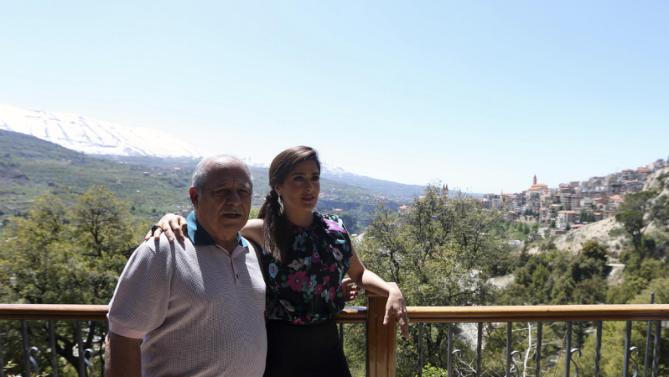
Mexican and American actress Salma Hayek and her father pose for photographers during her visit to Khalil Gibran's museum in the northeast mountain town of Bcharre, Lebanon, Sunday, April 26, 2015. Hayek visited her ancestral homeland Lebanon to launch her latest film "The Prophet," a screen adaptation of the book by the same name written nearly a century ago by the famed Lebanese-born poet and philosopher Gibran. (AP Photo/Bilal Hussein)
By Sylvia Westall
BEIRUT (Reuters) - Movie star Salma Hayek said on Monday her new film The Prophet was a labour of love that helped her explore her relationship with her late Lebanese grandfather who adored the book that inspired it. The animated film, which draws on the 1923 book by Lebanese-born writer Kahlil Gibran, tells the story of Almitra, a headstrong girl who forms a friendship with the imprisoned poet Mustafa, voiced by actor Liam Neeson. Mexican-American actress Hayek co-produced the film and does the voice-over for Almitra's mother, Kamila. The story unfolds in an imaginary coastal city and explores Gibran's themes of love and spirituality. "For me this is a love letter to my heritage." Hayek visited Gibran's birthplace, Bcharre village, in northern Lebanon on Sunday to pay tribute to the writer and his book, a series of poetic essays written in English, which has sold more than 100 million copies worldwide. She said she hoped the film, which she wanted to be accessible to children, would give a global audience a taste of literature from a Middle Eastern author. "There is an Arabic writer who wrote philosophy and poetry and who brought all religions and all the world together," she said In the film, written and directed by Lion King director Roger Allers, Mustafa is locked away for his poetry which is deemed dangerous and rebellious. He explains to Almitra how he escapes his imprisonment through his mind. "My words are my wings," he says. Hayek says she was inspired by Gibran's mother who shares the name of her character Kamila. After an unhappy marriage Kamila moved to the United States and worked selling cloth to provide for her four children. "Because of her courage Kahlil Gibran was inspired to be the man that he became," Hayek said. She cited this example and criticised Lebanese law which prevents women passing on their nationality to their children, appealing for a change in policy. "Our blood is as good as a man's blood and we carry them in our wombs, so (the blood) is even more ours than anyone else," she said. "We should be able to pass on our heritage to our children." (Editing by Louise Ireland)